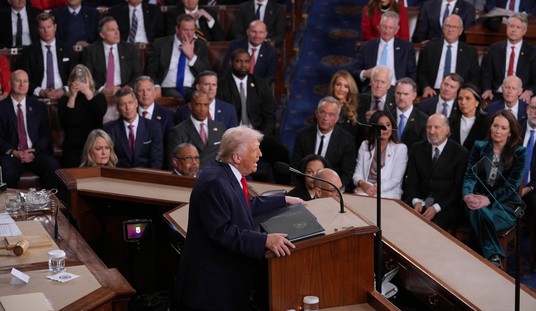U.S. District Judge Jean Hamilton ruled last week that the federal government cannot force Paul and Teresa Wieland -- an American mom and dad -- to violate their religious beliefs by compelling them to purchase a health insurance plan that covers sterilizations, contraceptives, and abortion-inducing drugs and devices.
But in making the Obama administration's case that the government should be able to do so, lawyers for the U.S. Justice Department made a telling claim: A single-payer health care system would effectively put a stop to such arguments in defense of religious liberty.
In a complaint filed in 2013, lawyers Timothy Belz (who represented the Wielands) and Peter Breen (of the Thomas More Society of Chicago) first made the family's case in federal court.
Paul Wieland, they said, was a member of the Missouri state legislature and he and his wife, Teresa, had three daughters, who were then 12, 18 and 19 years of age.
"The plaintiffs, along with their children, are life-long Roman Catholics," said the complaint.
The family had purchased health insurance through Wieland's job with the Missouri state government. Initially, "the plan did not include coverage for contraceptives, sterilizations or abortifacients, because the Wielands had opted out of such coverage," said the complaint.
But then the plan, operated by the state of Missouri, was changed to comply with the Obamacare regulation requiring such coverage.
"The plaintiffs cannot provide, fund or in any way be a participant in the provision of health care coverage for contraception, sterilization, abortions or abortifacient drugs and devices, such as Plan B, ella, and copper IUDs, or related education or counselling, without violating their sincerely-held religious beliefs," said the Wieland's complaint.
Recommended
"The plaintiffs believe that forcing them to provide insurance coverage to their daughters for contraceptives, sterilization and abortifacients and related counseling is a governmental interference with their parental rights and fundamental right to their family's integrity," said the complaint.
The district court first decided the Wielands did not have standing to bring this case. Then the U.S. Court of Appeals for the Eighth Circuit ruled that they did and sent the case back to the district court.
That court then examined its merits under the Religious Freedom Restoration Act.
This itself is a good measure of how close Americans are to losing their religious liberty.
The First Amendment forbids Congress from making any law "prohibiting the free exercise" of religion. RFRA, enacted in 1993, says the government can "substantially burden a person's exercise of religion" -- so long as it is advancing "a compelling governmental interest" by the "least restrictive means."
In March, lawyers for the Obama Justice Department submitted their argument to the district court. They said it did not substantially burden the Wieland family's exercise of religion to force them to buy insurance that covers sterilizations, contraceptives and abortifacients -- but even if it did, it advanced a compelling government interest by the least restrictive means.
Judge Hamilton did not agree.
She concluded that the government did substantially burden the Wieland's exercise of religion and, citing the Supreme Court's similar assumption in the Hobby Lobby case, said that the court would "assume for all intents and purposes that the government has a compelling interest in having a workable insurance system that covers a wide range of preventive health service."
"Nevertheless," the judge concluded, "the court finds that the government has not met its burden of showing that 'it lacks other means of achieving its desired goal without imposing a substantial burden on the exercise of religion by'" the Wielands.
"Plaintiffs propose that the government could allow a system like that in place in Missouri before the Mandate, where individuals could simply check a box to opt out of contraceptive coverage," said the judge. "The court agrees that this less restrictive alternative would equally further the government's interest."
In their argument to the court, the Justice Department lawyers had suggested another vision for stopping cases challenging government health insurance mandates on religious grounds.
"It also follows that there would be no viable RFRA challenge if Congress had adopted a single-payer system in which the government provided health coverage including preventive services to all Americans and required all Americans to pay premiums to pay for that coverage," the Justice Department lawyers told the court. "The fact that Congress chose to accomplish the same goal through the less-intrusive means of regulating the existing system of private health insurance provides no sound basis for reaching a different conclusion: The interests in universal participation in a comprehensive system are the same."
In other words: When government takes complete control of the health care system, there will be no room for religious liberty.
























Join the conversation as a VIP Member